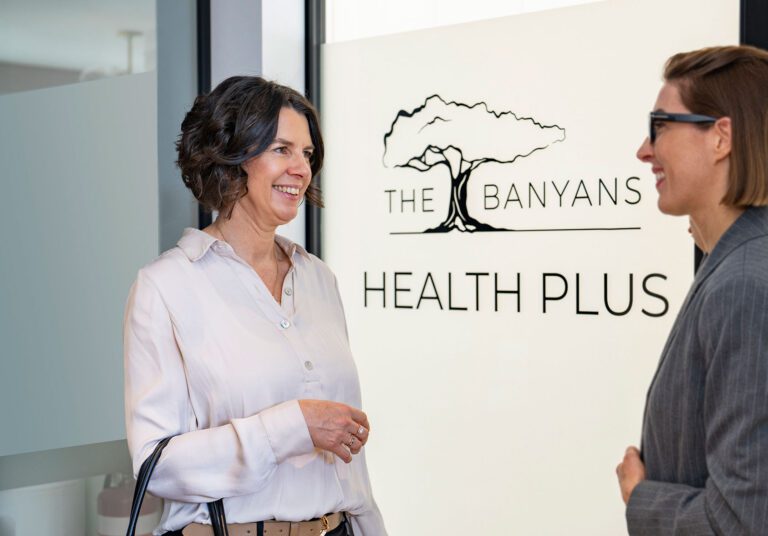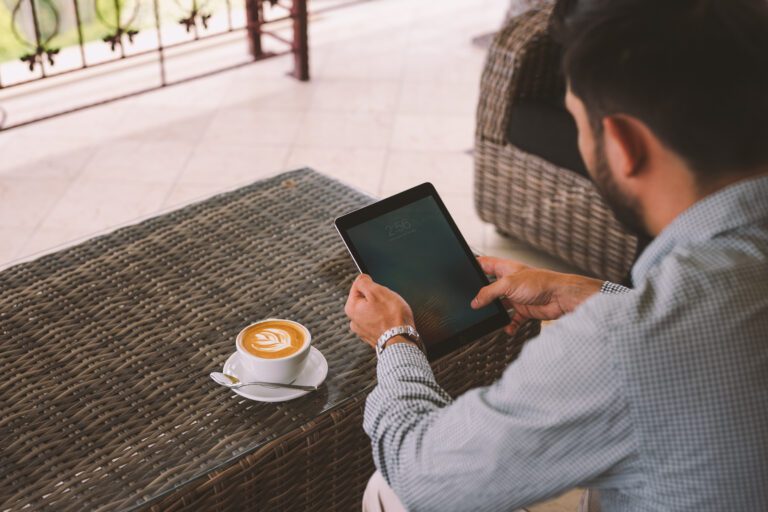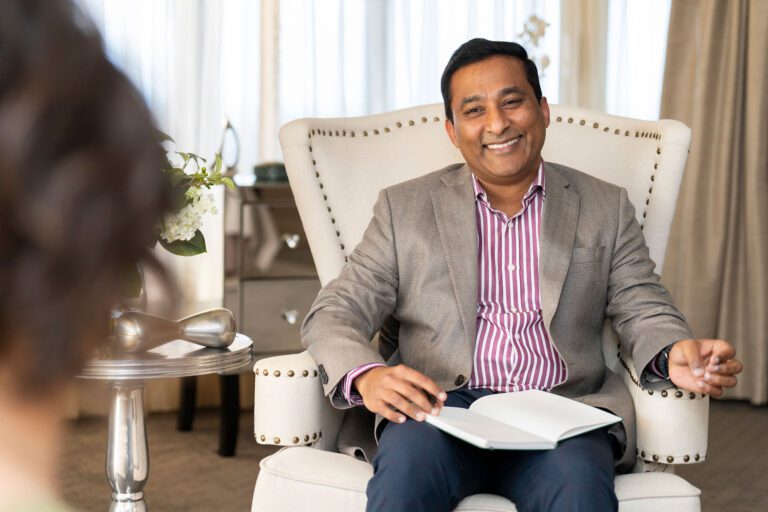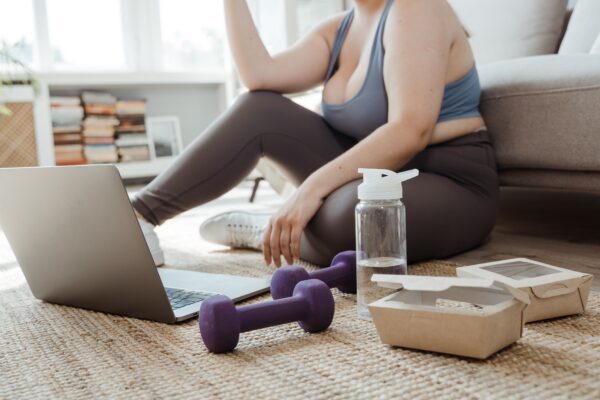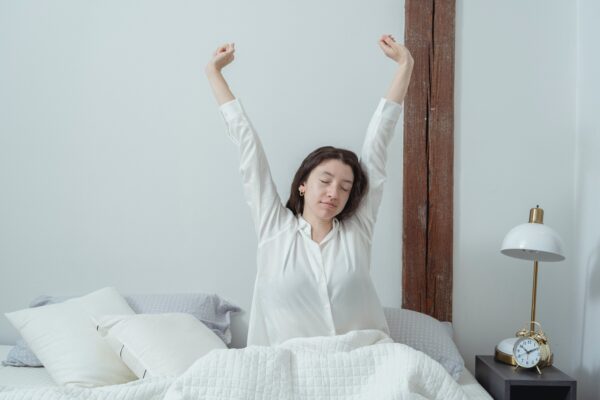
During a pandemic, the need to work from home can make people feel uncomfortable, demotivated or even depressed. In this time of COVID-19, many people feel overwhelmed and out of routine as they attempt to navigate working from home, changes to roles, homeschooling and concern about their future.
Written by Ruth Limkin, CEO of The Banyans
Leaders of businesses and organisations have the added responsibility of caring for their teams’ health and wellbeing. For many business leaders, this increased need to care for employee wellbeing has come at precisely the same time they are also trying to steer their business through the most difficult season they will likely face.
The good news is that research shows that one helps the other. When leaders invest in employee and staff wellbeing, team members are more productive. This increased productivity helps the organisation to achieve goals such as serving more customers.
So how do leaders balance wellbeing of their team and wellbeing of their business?
1. Be selfish
Simon Sinek is famous for his phrase that leaders eat last. In other words, leaders are there to serve, rather than to lord over their organisations and teams. However, there is one area that leaders need to be selfish, and that’s in their own wellbeing.
In the way that we are reminded in aviation safety briefings to fix your own mask before trying to help others, leaders need to be as healthy and productive as they can be, in order to best serve their teams.
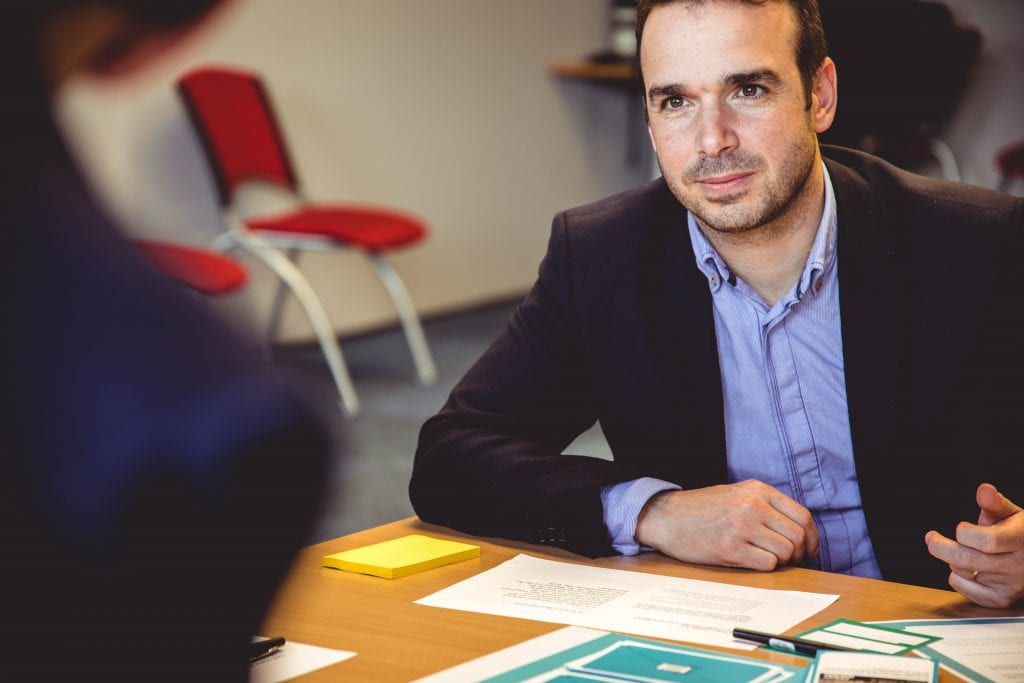
This is an extraordinary time. Leaders need extraordinary focus to best navigate this. Physical, cognitive and emotional wellbeing is crucial for leaders to not just get through this, but to get their teams through this as well.
DISC profile promotes personalised approach to wellbeing
Every leader is different, so there is no ‘one size fits all’ approach to working out how to best promote wellbeing. There are tried and true principles but each need to be customised so they fit well.
For instance, if you use the DISC model of preferred communication and behavioural styles, some leaders need to socialise to alleviate stress, while some need solitude. Learning how you work best and playing to your strengths during stress is going to help you be the best leader you can be for your team and organisation.
Equip yourself with personal understanding
If you haven’t completed a DISC training module – a powerful yet simple tool to help you understand yourself and others – The Banyans has certified DISC analysts who can give you access to the assessment, provide the detailed report and then take you through a coaching session via phone or video chat.
The increased need to care for employee wellbeing coincides with trying to steer a business through the most difficult season they will likely face as leaders.
2. From ruts to rhythms
It can be hard to develop new routines when all your usual time of day markers have disappeared. Very few people are commuting to work, which used to be the time to mentally prepare for the day. A commute could often be the time to think through what was ahead, or listen to a motivating podcast or audio book.
Instead, many workers are now finding themselves working from home and a commute of ten steps. How do you build in those mental routines when the physical routine has been lost?

Similarly, the end of day commute is, for many workers, the opportunity to mentally catalogue the day, ticking off a list in their mind and thinking through what worked and what didn’t. It allowed a transition from work to home, and could help workers switch into rest as they moved physically further from their workplace. That’s gone too.
Incidental connection more powerful than most realise
Some workers describe feeling a little lost without the chats they have with colleagues at lunch, or when they walk to get a morning coffee together. Incidental social connection and physical movement has more positive impact than we often realise, so when this is removed, the need to be intentional is escalated.
Thinking through new routines can be an empowering action that helps workers find clarity and control over new ways of working.

Sleeping soundly is the secret to success
This is equally important for during the day as it is for the end of the day. We are rightfully focused on hand hygiene during Covid-19 but sleep hygiene is also important if we want our teams to rest well and be ready to work productively.
As this Banyans blog points out, “our health, our mood, and our energy levels are largely controlled by our hormones and nothing impacts our hormones more than our sleep quality does.”
Helping employees to manage their wellbeing through developing healthy routines during the day and at the end of the day, pays off.
Encourage your team towards healthy rhythms of rest
As a leader, you may feel uncomfortable with the thought of encouraging your team to sleep better. However, it is your responsibility as a leader to ensure your team are equipped with tools that will maximise their productivity during their work day.
Avoid an awkward conversation. Instead, gift your team unlimited access to the Workforce Wellbeing Series. This four part training module will equip your team with the information and skills they need to thrive – on and off the job!
3. Movement with purpose
Movement is good, but not all movement is created equal.
With the loss of incidental movement that comes from interacting with colleagues or walking to meetings, comes the need to be intentional with posture, movement and stretching so staff members working at home don’t experience physical ill-health. Even a simple reduction in incidental movement, combined with stress and poor posture, can start to create physical problems like headaches, which makes it harder to concentrate or complete complex tasks.
Quarantine snacks might be good for some levity, but a regular trek to the fridge won’t necessarily be enough help employees who are working from home.

One of the video lessons in the Workforce Wellbeing Series deals specifically with some simple movements that most people can accomplish, even at their desk. Employees don’t have to engage in challenging routines using complex equipment. David Nolan, a physical therapist at Harvard-affiliated Massachusetts General Hospital says, “A lot of people don’t understand that stretching has to happen on a regular basis. It should be daily.”
That’s why short stretching breaks can and should be incorporated into a work day, particularly when you have moved staff to working from home.
4. Remember to breathe
It’s been said that the nation is holding its breath at the moment, as businesses and workers wait to see the full impact of coronavirus on public health and the economy. While the nation might be, your staff shouldn’t be.
While the usual act of breathing in and out is an unconscious action, we can also consciously harness our breathing to help manage anxiety and promote clarity.
Consciously harnessing our breathe into a focused rhythm has benefits such as reduced stress hormones, increased blood flow, regulated heartbeat and general release of tension.
We are living and working in a time when anxiety is at the forefront for many people. Some of your team will be living with anxiety in some form or another, and this may be exacerbated at present. You may also find the team members who don’t usually experience anxiety may be more prone to moments of heightened concern.
It is important to have Employee Assistance Programs, where staff can access confidential professional counselling, and these can be effectively delivered via telehealth. In addition, it is equally important to provide tools for your team to implement on a daily basis.
Teach your team to harness this free tool to reduce anxiety
Learning to calm yourself through simple breathing exercises is a free, short and effective strategy to help you and your team manage anxiety in the first instance.
Equip your team with free skills and strategies to thrive – mentally, physically and emotionally. The Workforce Wellbeing Series is a simple solution in a time of chaos and confusion.
The period of disruption and distance that we are experiencing makes it more difficult to care for your team. Right at the moment, it is important to do so. It hasn’t reduced the need to focus on wellbeing – it has heightened it. Caring for you and your team’s wellbeing is the most important investment you can make as a leader right now. Start with you, and then lead from a place of health.









